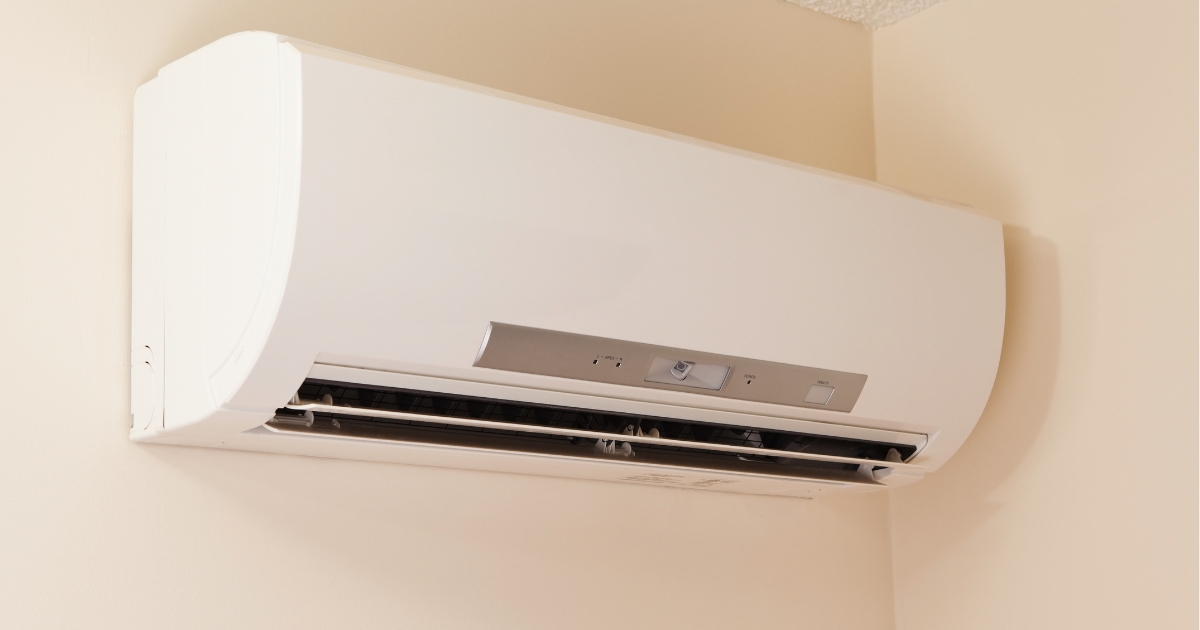The Ins and Outs of Mini Split Heat Pumps
Mini-split systems and heat pumps often buzz in HVAC conversations for their efficiency and versatility. These systems cater to homeowners looking for precise temperature control in specific rooms without the hassle of ductwork.
Mini-splits are ductless systems with an outdoor compressor and one or more indoor units. They shine in energy efficiency and easier installations compared to traditional ducted systems.
Heat pumps go a step further, providing both heating and cooling by moving heat from one place to another. When integrated with mini-splits, they become mini-split heat pumps, offering even more advantages like zoned temperature control and energy savings.
What are Mini Split Heat Pump Systems?
The quick answer: Not all mini splits are heat pumps, but many are! Let’s break it down:
- Mini-splits: Ductless systems used for heating and cooling.
- Heat pumps: Systems that move heat to provide heating and cooling.
- Mini-split heat pumps: Combine the features of mini-splits and heat pumps for flexible, energy-efficient heating and cooling.
With significant benefits like reduced energy bills and room-specific climate control, mini-split heat pumps have gained popularity, especially in regions like Central Massachusetts.
Here’s a quick visual breakdown to help you understand:
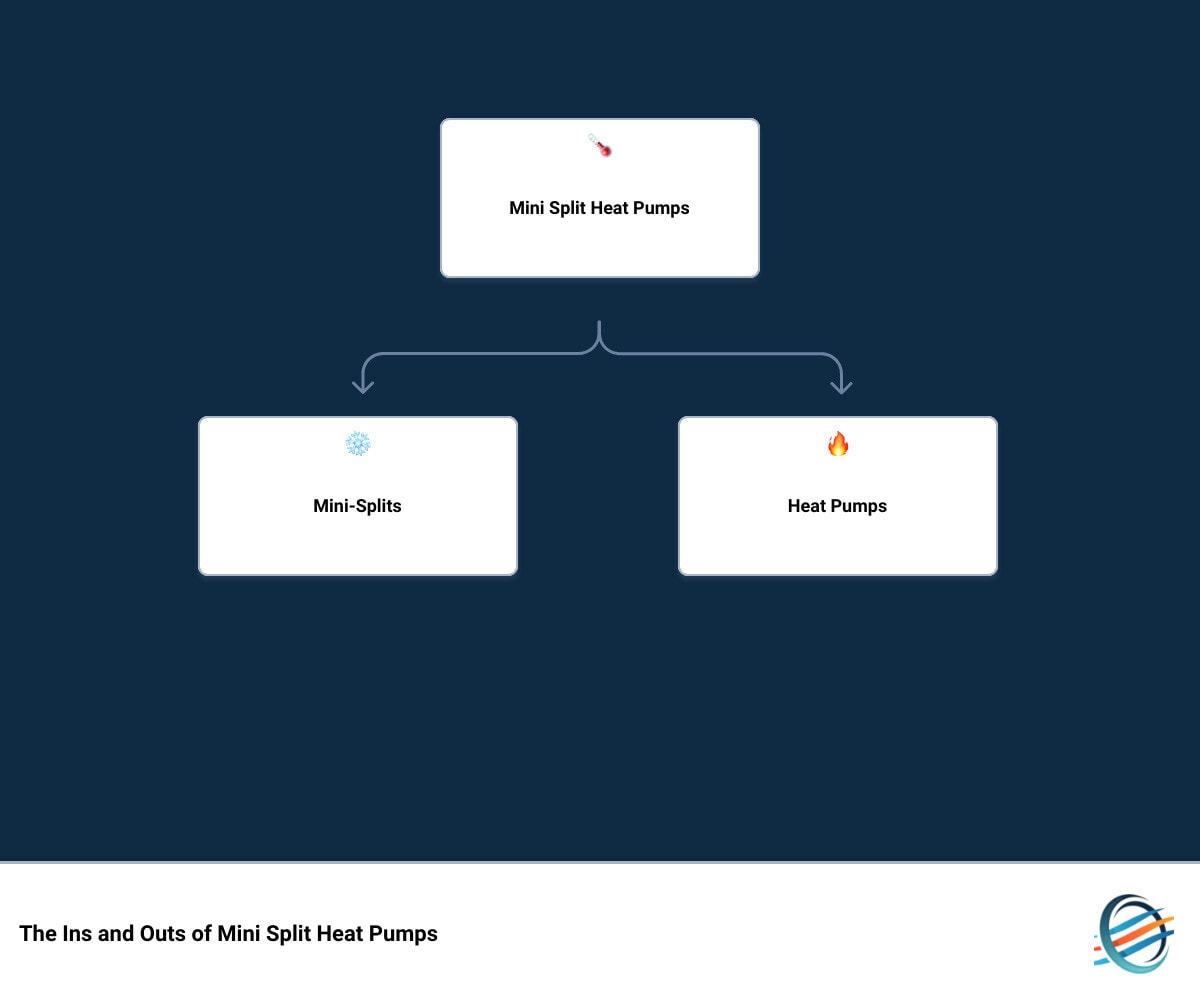
Table of Contents
What are Mini Splits?
Mini splits are ductless systems designed for heating and cooling individual rooms or zones within a home or business. Unlike traditional HVAC systems that rely on ductwork to distribute air, mini splits consist of two main components: an outdoor compressor and one or more indoor air handlers.
Key Components
- Outdoor Compressor: This unit is installed outside your home and works to either absorb heat from the outside air (for heating) or release heat from the inside air (for cooling).
- Indoor Air Handler: These units are installed inside your home in the rooms or zones you want to control. They distribute the heated or cooled air directly into the living space.
Temperature Control
Mini splits offer precise temperature control for each room or zone. This means you can set different temperatures for different areas, unlike traditional systems that often heat or cool the entire house to the same temperature. This is especially useful for homes with varied usage patterns.
Energy Efficiency
One of the standout benefits of mini splits is their energy efficiency. Because they don’t use ducts, they avoid the energy losses that can occur in ducted systems. According to the U.S. Department of Energy, duct losses can account for more than 30% of energy consumption for space conditioning. Many mini splits are ENERGY STAR certified, which ensures they meet strict energy efficiency guidelines and can lead to additional cost savings.
Cost Savings
Due to their high efficiency, mini splits can lead to significant cost savings on your energy bills. Additionally, many regions offer rebates and incentives for installing energy-efficient systems like mini splits. For example, in Massachusetts, programs like Mass Save provide rebates ranging from a few hundred to several thousand dollars per system.
Flexibility
Mini splits offer incredible flexibility in terms of installation and usage. You can install them in new homes, retrofits, or room additions without the need for extensive ductwork. They are also ideal for homes with non-ducted heating systems, such as hydronic or radiant panels. While mini splits are perfect for homes without ductwork, ducted heat pumps are a great solution for homes with existing ductwork, providing efficient and flexible heating and cooling by connecting an outdoor unit to a central indoor unit and spreading air through air ducts.
Installation
Installing a mini split is generally easier and less invasive than installing a traditional HVAC system. The connection between the outdoor and indoor units usually requires only a small hole through the wall, making the process quicker and less disruptive.
Maintenance
Maintenance for mini splits is relatively straightforward. Regular tasks include cleaning the air filters and checking the outdoor unit for debris. Unlike ducted systems, there’s no need to worry about cleaning or maintaining ductwork, which can be a significant advantage.
With their combination of efficiency, flexibility, and ease of installation, mini splits are an excellent choice for many homeowners. Whether you’re looking to add comfort to a single room or multiple zones, these systems offer a versatile and cost-effective solution.
What are Mini Split Heat Pumps?
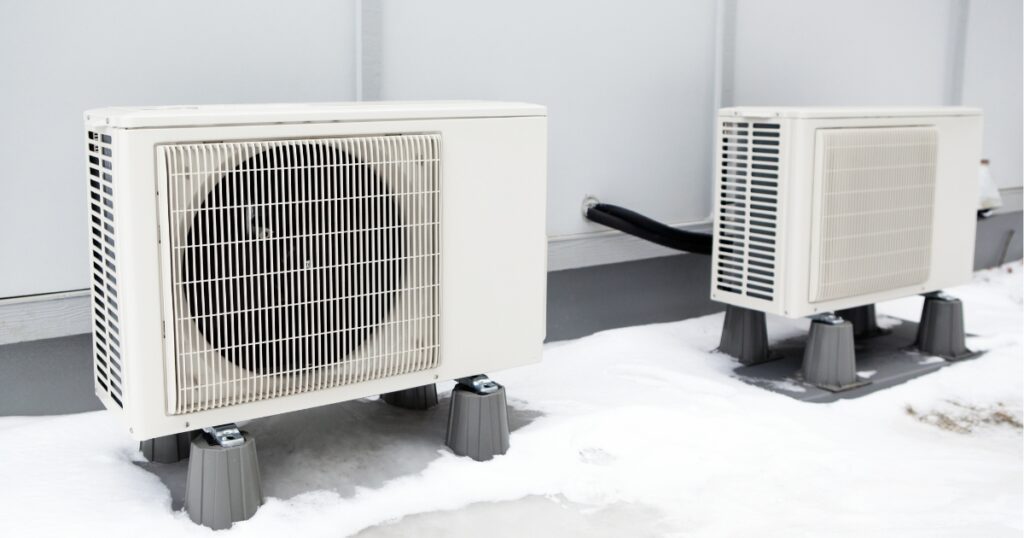
When people ask, “What are mini split heat pumps?”, the answer isn’t always straightforward. Let’s break it down.
Cooling Only Units
Not all mini splits are heat pumps. Some mini splits are designed solely for cooling. These units work much like a traditional air conditioner, providing cooling to specific areas without any heating functionality. They are efficient for cooling but don’t offer the versatility of heating.
Heating Functionality
Mini split heat pumps are a different breed. These systems provide both heating and cooling, making them a versatile heat pump system for year-round comfort. They use heat pump technology to transfer heat from one place to another, ensuring efficiency in both modes. The efficiency of a heat pump system is often measured by its Heating Seasonal Performance Factor (HSPF), which indicates how well it performs in heating mode. In the winter, they extract heat from the outside air and bring it inside. In the summer, they reverse the process, moving heat from inside to outside.
Air Source Heat Pumps
Most mini split heat pumps are air source heat pumps. This means they extract heat from the air. This technology is efficient and effective, even in colder climates. The efficiency of air source heat pumps in cooling mode is measured by the Seasonal Energy Efficiency Ratio (SEER), with a higher SEER indicating greater efficiency. However, their efficiency can drop in extremely low temperatures, which is something to consider if you live in a very cold area.
GREE Comfort
A noteworthy mention is GREE comfort systems. All mini splits made by GREE are heat pumps. They offer both heating and cooling capabilities, ensuring you get the most out of your investment. GREE systems are known for their maximum efficiency and flexibility, making them a popular choice among homeowners.
HVAC Systems
In HVAC, mini split heat pumps stand out for their zoning capabilities, energy efficiency, and ease of installation. They offer a tailored solution for both heating and cooling needs, without the need for ductwork. This makes them an excellent choice for homes without existing ducts or for those looking to add comfort to specific areas.
Understanding whether mini splits are heat pumps is crucial for making an informed decision. If you need both heating and cooling, opting for a mini split heat pump is the way to go. If cooling is your only requirement, a cooling-only unit might suffice.
Next, let’s delve into the advantages of mini split heat pumps and why they might be the perfect solution for your home.
Advantages and Disadvantages of Mini Split Systems
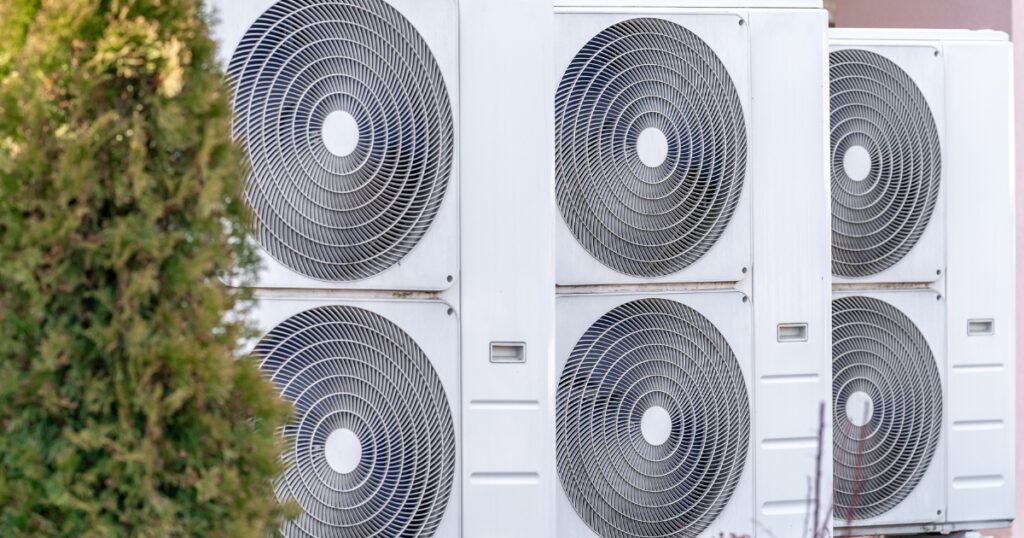
Advantages of Mini Split Heat Pumps
Energy Efficiency: Mini split heat pumps move heat rather than generate it, avoiding duct losses and achieving up to four times the energy savings compared to traditional HVAC systems.
Zoning: Allows for precise temperature control in individual rooms, leading to energy savings and personalized comfort with each indoor unit having its own thermostat.
Installation Ease: Installation is simpler and less invasive, requiring only a small hole in the wall, making it ideal for homes without existing ductwork or for renovations.
Disadvantages of Mini Split Heat Pumps
Installation Cost: The initial installation cost is higher compared to traditional HVAC systems, although this can be offset by lower operating costs and potential rebates.
Aesthetic Concerns: Indoor units may not be visually appealing to everyone, though various design options exist to better match interior decor.
Correct Sizing: Proper sizing and placement by a professional installer are crucial to avoid short cycling, wasted energy, and ineffective temperature control.
Conclusion
Mini-split heat pumps are a versatile and energy-efficient solution for both heating and cooling your home. They offer several advantages, such as room-by-room temperature control, easy installation, and the elimination of energy losses associated with ductwork. While there are some challenges, like higher initial installation costs and the need for proper sizing, the benefits often outweigh the drawbacks.
Contact us today at Indoor Air Systems. We specialize in the installation and maintenance of mini-split systems. With over 20 years of experience, our team is dedicated to providing personalized attention and expert HVAC services to homeowners in Central Massachusetts. We understand the unique needs of each home and are committed to ensuring your indoor comfort all year round.
For more information or to request a quote, visit our services page. Let us help you achieve optimal indoor air quality and comfort with our specialized heating and cooling solutions.
Next, we’ll address some frequently asked questions to further clarify any doubts you may have.
Frequently Asked Questions about Mini Split Heat Pumps
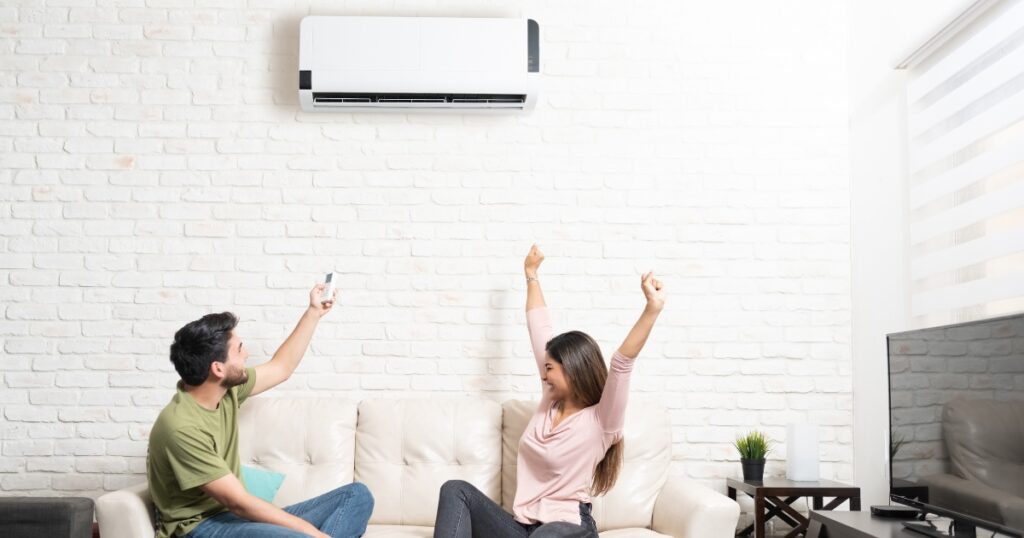
Is the heat pump the same as a mini-split?
Not all mini-splits are heat pumps, though many are. Some mini-splits only provide cooling, similar to traditional air conditioners. However, mini-split heat pumps offer both heating and cooling. They use air source heat pump technology to extract heat from the air outside and transfer it indoors, or vice versa, depending on the season.
For example, GREE comfort makes mini-split systems that are all heat pumps, providing year-round comfort with both heating and cooling capabilities.
What are the disadvantages of a mini-split heat pump?
While mini-split heat pumps have many benefits, they do come with some drawbacks:
- Aesthetic Concerns: Indoor air handlers can be bulky and might not blend well with your home decor. Some homeowners find them to be an eyesore.
- Limited Coverage: A single unit may not be enough to heat or cool an entire home. You might need multiple units, which can increase costs.
- Weather Conditions: Some models struggle in extremely cold temperatures (below 13°F). It’s essential to choose a model designed for low-temperature performance if you live in a colder climate.
- Maintenance: Regular cleaning of filters and annual professional maintenance are necessary to keep the system running efficiently.
- Cost: The upfront cost can be high, especially if multiple units are needed. However, the energy savings over time can offset this initial expense.
- Space Requirements: Indoor units require wall space, and outdoor units need an appropriate location outside your home.
- Allergens: If not properly maintained, mini-split systems can harbor dust and allergens, affecting indoor air quality.
Are mini splits good for heating in cold climates?
Yes, but with some conditions. Mini-split heat pumps are efficient and provide excellent room-by-room control, making them ideal for targeted heating. However, their performance can vary in extremely cold weather.
Some models are specifically designed for cold climates and can efficiently extract heat from the air even at low temperatures. It’s crucial to choose a mini-split heat pump rated for the lowest temperatures expected in your area.
In summary, mini-splits can be effective for heating in cold climates, but select the right model and ensure proper installation and maintenance.
Our Content
At Indoor Air Systems, LLC, we provide specialized HVAC services with a personal touch. Serving Central Massachusetts, we focus on the installation and maintenance of mini-split systems, ensuring efficient and cost-effective heating and cooling solutions. Our locally owned and operated business allows us to offer exceptional customer attention and responsiveness without the high costs associated with larger companies. Choose Indoor Air Systems for reliable, expert service tailored to your specific needs.

